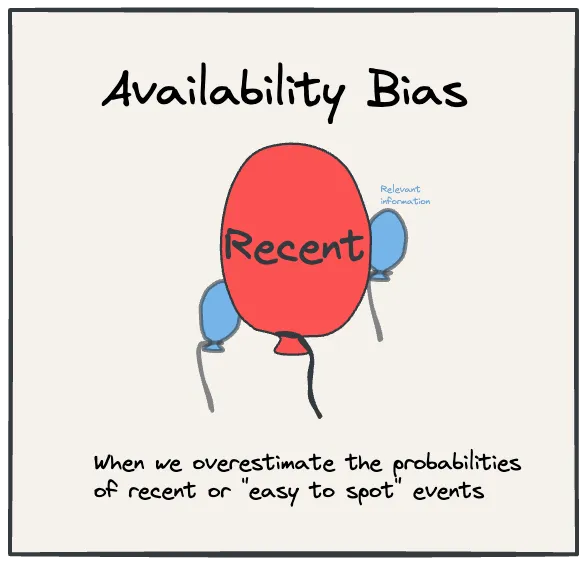Availability Bias
Notes
Availability bias is when we think a phenomenon is more likely only because it is easier for us to remember the most recent case. For example, right after a natural disaster, we would think such an event is much more likely than it's actually is. It is related to Visibility because it's easier for us to think about salient cases rather than "hidden" probabilities of unknown events. It can also be related to the Familiarity bias, because the things that are easily available in our memory are probably very familiar to us. Similarly, if we are entrenched too deep in Conformation Bias, we essentially surround ourselves only with information that supports our views, regardless how limited or false it is, so "its no surprise" that we can recall it more easily and exaggerate it's importance.
It also assumes that Forgetting is an indication of importance, meaning that we won't forget the important things, so if something's forgotten then it's not important.
This means that our views are highly affected by Context. Our thinking might change drastically if we change the type and frequency of information that we consume. It could also be the key behind views such as Pessimism and Optimism. Perhaps we become what we consume. If we only listen to bad news, we believe that they are more frequent than they are, and vice versa with good news.
The availability bias can also limit our creative thinking, because when we first try to brainstorm new ideas, we would come up with the most basic and common answers, which are hardly innovative.
Visual

Overview
🔼Topic:: Cognitive Bias (Map) ↩️Origin:: 🔗Link::